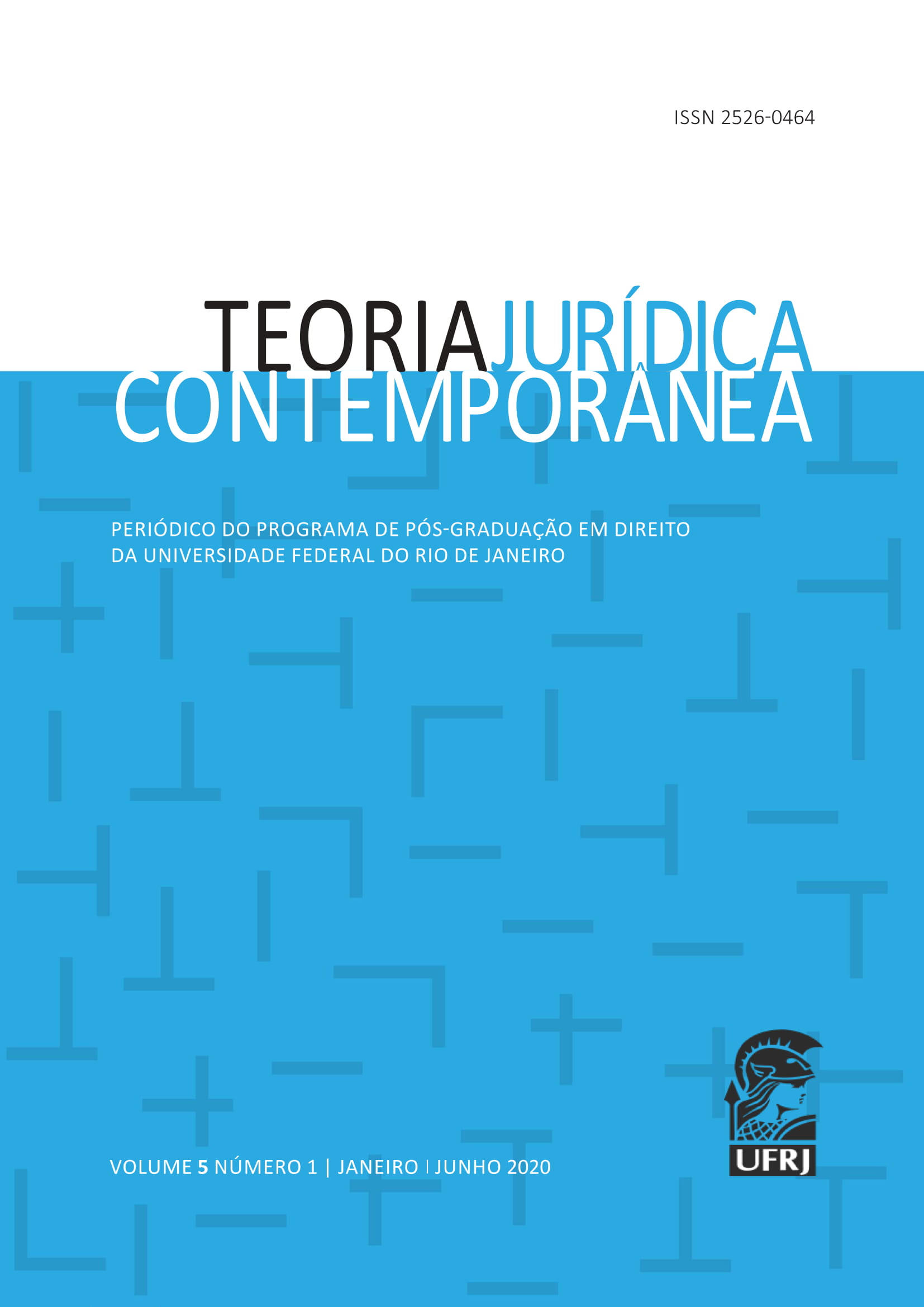Respect for non-autonomous persons: dealing with dementia patients
DOI:
https://doi.org/10.21875/tjc.v5i1.27944Palavras-chave:
Pacientes com demência, Respeito aos pacientes com demência, Princípio do respeito à autonomia, Auto-decisão, Conceito de personalidadeResumo
RESUMO:
Neste texto, questiono o que significa respeitar pacientes com demência. Além disso, analiso qual abordagem apropriada deve ser empregada ao discutir pacientes com demência, como determinadas pessoas. Examino abordagens diferentes, como a abordagem da autonomia, a abordagem do melhor interesse e a abordagem do conceito de personalidade no sentido forte e fraco. Argumento que a abordagem autônoma que entende os pacientes com demência como capazes de tomar decisões autônomas afirma a validade do princípio de respeitar a autonomia. Por outro lado, a abordagem do melhor interesse se concentra no conforto da experiência atual do paciente para respeitar os pacientes com demência. Assinalo que tanto a abordagem autônoma quanto a de melhor interesse são inadequadas para as questões que endereço neste artigo. Argumento e concluo que a abordagem baseada no conceito de personalidade é apropriada, não no sentido de que a personalidade do paciente é o único fator importante (no sentido forte), mas no sentido de que é um fator importante no respeito ao paciente com demência (no sentido fraco).
Downloads
Referências
ACH, S. Johann.; SCHÖNE-SEIFERT, Bettina. Relationale Autonomie.Eine kritische Analyse. In: WIESEMANN, Claudia; SIMON,Alfrediesemann und Alfred Simon (Hrsg.): Patientenautonomie.Theoretische Grundlagen –Praktische Anwendungen. Münster:mentis, 2013.
BERENDONK, Charlotte; STANEK, Silke; SCHÖNIT, S. Eva; KASPAR, Berendonk; BÄR, Marion; KRUSE, Andreas. Biographiearbeit in der stationären Langzeitpflege von Menschen mit Demenz. Potenziale des DEMIAN-Pflegekonzepts. In: Zeitschrift für Gerontologie und Geriatrie. Volume 44, Issue 1. Berlin: Springer, 2011.
BIRNBACHER, Dieter. Tun und Unterlassen. Aschaffenburg: Alibri Verlag, 2015.
BOBBERT, Monika; Werner, H. Micha. Autonomie/Selbstbestimmung. In: LENK, Christian; DUTTGE, Gunnar; FANGERAU, Heiner (Hrsg.): Handbuch Ethik und Recht der Forschung am Menschen. Berlin, Heidelberg: Springer, 2014.
BROCK, W. Dan. Medical Decisions at the End of Life. In: KUHSE, Helge; SINGER, Peter (Eds.): A Companion to Bioethics. Second Edition. Hoboken: Willey-Blackwell, 2013.
DRESSER, Rebecca. Advance Directives, Self-determination, and Personal Identity. In: HACKLER, Chris; MOSELEY, Ray; VAWTER, Dorothy E. (Eds.): Advance Directives in Medicine. New York Praeger, 1989.
DRESSER, Rebecca. DWORKIN on Dementia. Elegant Theory, Questionable Policy. In: Hastings Center Report 25, no. 6, 1995.
DWORKIN, Ronald. Life’s Dominion. London: HarperCollins, 1993.
ELLIOTT, Carl. Patients Doubtfully Capable or Incapable of Consent. In: KUHSE, Helge; SINGER, Peter (Eds.): A Companion to Bioethics. Second Edition. Hoboken: Willey-Blackwell, 2012.
FIRLIK, D. Andrew. Margo’s Logo. In: JAMA. Vol. 265, No. 2, 1991.
FORD, Pauline; MCCORMACK, Brendan. Keeping the person in the centre of nursing. In: Nursing Standard. Vol. 14 (46), 2000.
FRANKFURT, G. Harry. Freedom of the Will and the Concept of a Person. In: The Journal of Philosophy, Vol. 68, No. 1, 1971.
HELIKER, Diane. Transformation of story to practice: An innovative approach to long-term care. In: Issues in Mental Health Nursing. Vol. 20, 1999.
HOLM, Søren. Autonomy, authenticity, or best interest: Everyday decision-making and persons with dementia. In: Medicine, Health Care and Philosophy 4, 2001.
KNELL, Sebastian. Würde am Ende der Autonomie. In: Deutsche Zeitschrift für Philosophie. Band 66, Heft 1. Berlin: de Gruyter, 2018.
KUNIHIRO, Kuroki; LEWERICH, Ludgera; SHIMADA, Shingo. Altersdemenz und Formen der Fürsoge im lokalen Kontext. In:
LEWERICH, Ludgera; SHIMADA, Shingo; SPODEN, Celia (Hrsg.): Altersdemenz und lokale Fürsorge. Ein deutsch-japanischer Vergleich. Bielefeld: transcript, 2018.
LOCKE, John. An Essay concerning Human Understanding. Oxford University Press, 1975.
MCCORMACK, Brendan. The person of the voice: narrative identities in informed consent. In: Nursing Philosophy 3, 2002.
MCDOUGALL, Rosalind. Best interests, dementia, and end of life decison-making: the case of Mrs S. In: Monash Bioethics Review. Vol. 24, No. 3, 2005.
Nuffield Council on Bioethics. Dementia: ethical issues, 2009.
NYS, R.V. Thomas. The Wreckage of Our Flesh: Dementia, Autonomy and Personhood. In: DENIS, Yvone; GASTMANS, Chris; VANDEVELDE, Antoon (Eds.): Justice, Luck & Responsibility in Health Care. Philosophical Background and Ethical Implications for End-of-Life Care. Heidelberg, New York, London: Springer, 2013.
QUANTE, Michael. Person. Berlin: de Gruyter, 2007.
QUANTE, Michael. Personale Autonomie, Dependenz und Würde im Kontext der Pflege. In: NOLLER, Jörg. (Hrsg.): Was sind und wie existieren Personen? Probleme und Perspektiven der gegenwärtigen Forschung. Münster: Mentis, 2019.
RÖSSLER, Beate: Autonomie. Ein Versuch über das gelungene Leben. Berlin: Suhrkamp, 2017.
Schweizerische Akademie der Medizinischen Wissenschaften (2018): Betreuung und Behandlung von Menschen mit Demenz, 2018.
SCHMIDHUBER, Martina: Der Stellenwert von Autonomie für ein gutes Leben Demenzbetroffener. In: Salzburger Beiträger zur Sozialethik. Nr. 5, 2013.
World Medical Association, Declaration of Lisbon on the Right of the Patient. Online: http://dl.med.or.jp/dl-med/wma/lisbon_e.pdf. Accessed lastly: 27.07.2019.
Downloads
Publicado
Edição
Seção
Licença
Os autores que publicam nesta revista concordam com os seguintes termos:
- Os autores mantêm os direitos autorais e concedem à revista o direito de primeira publicação, com o trabalho simultaneamente licenciado sob a Licença Creative Commons Attribution que permite o compartilhamento do trabalho com reconhecimento da autoria e publicação inicial nesta revista.
- Os autores têm autorização para assumir contratos adicionais separadamente, para distribuição não-exclusiva da versão do trabalho publicada nesta revista (ex.: publicar em repositório institucional ou como capítulo de livro), com reconhecimento de autoria e publicação inicial nesta revista.
- Os autores têm permissão e são estimulados a publicar e distribuir seu trabalho online (ex.: em repositórios institucionais ou na sua página pessoal) a qualquer ponto antes ou durante o processo editorial, já que isso pode gerar alterações produtivas, bem como aumentar o impacto e a citação do trabalho publicado (Veja O Efeito do Acesso Livre).
Este obra está licenciado com uma Licença Creative Commons Atribuição-CompartilhaIgual 3.0 Brasil.


